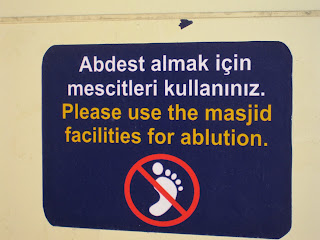Turkish Fog


Being in a foreign land where you don’t speak the language and where customs are so different means living in a perpetual fog. Take for example Evan’s and my attempt to sit at a restaurant in
When faced with non English speakers, Evan is a fan of extravagant hand gestures and elaborate explanations. He believes, perhaps correctly, that it builds trust to try to explain the situation in English even if the recipient can’t understand. That the listening and trying to understand creates empathy.
(For example, when our cell phone was not working and we wanted to use someone else’s, my strategy was to simply say, “Broken,” with a long face and maybe a little pantomime. Instead, Evan explained that he had bought the phone in another part of Europe and that European phones only work for two weeks in Turkey because there is a high tax on phones in Turkey and they don’t want people smuggling them in to avoid the taxes, but we did not know this so our phone was not functional, but our SIM card was so if we could borrow their phone we could put our SIM card in and they would not be charged.) (In the end we just gave them our phone and they saw for themselves that it was not working.)
So we arrived at this restaurant and in a frenzy of flying arms, gesticulating hands and lots of English explanation, Evan asked if we could sit there even though we were only two people. To my astonishment, it seemed to work and the proprietor cleared away the extra two plates. As we waited for our menu, the proprietor returned with the two beers we had unintentionally ordered. After accepting the drinks, we also got a menu. Faced with a Turkish menu, we chose three dishes that had delectable sounding names that we did not understand. After twenty minutes, the waiter brought out our two dishes which we accepted in our ever present fog.


























